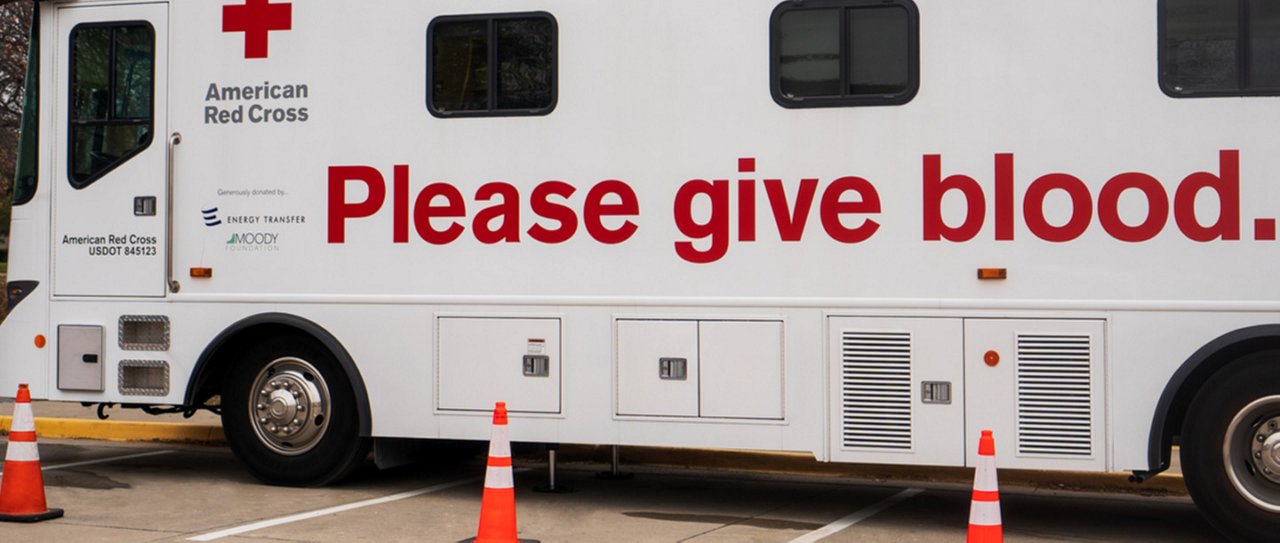Retired army surgeon finds a way to keep saving lives

Hugh J. Donohue, MD, COL(Ret.) US Army has donated over three gallons of blood since he relocated to the Raleigh area in 2003. That number is impressive–and it reflects his firsthand knowledge of the lifesaving power of blood transfusions as an Army medic.
“It’s a little ironic,” Hugh said. “The first time I went to donate blood, I was rejected. Turns out I was anemic, along with a lot of my classmates at West Point, from the stress of our training regimen.”
The first time Hugh attempted to donate blood in 1965, he admits, wasn’t out of selflessness. At West Point, the cadets received special privileges for doing so. But as he rose from Army cadet to Army surgeon, his perspective on donating blood became personal.
The story behind one man's drive to donate
Hugh graduated from West Point in 1969. Halfway through his training at the Military Academy, he learned about the opportunity to go to medical school – with the Army footing the bill. After graduating from Duke University’s School of Medicine in 1975, and then completing training as a general surgeon, he “paid his dues” through challenging clinical work for the Army, both at home and abroad. During his military career, Hugh spent time in Germany, Honduras, Panama, Iraq and Saudi Arabia.

In 1989, while stationed at Fort Bragg here in North Carolina, Dr. Donohue parachuted into Panama as a surgeon in the medical team of the 82nd Airborne Division, and almost immediately began treating casualties. He remembers working in a Forward Surgical Team tent next to an airbase runway, treating wounded at that location; all hospital buildings in nearby Panama City were in active combat zones. The photo above shows the team operating on a young Army Ranger who had been caught in an ambush, sustaining several wounds. The young man required a blood transfusion. And fortunately, Hugh and his team of medics had enough blood on hand to save the man’s life. But that wasn’t always the case.
During Operation Desert Storm, then-Colonel Hugh Donohue commanded Fort Bragg’s 28th Combat Support Hospital, leading it over 100 miles into Iraq. One day, a soldier arrived needing immediate surgery. The medics knew that he couldn’t wait for the team to secure more blood. And then something happened that Hugh will never forget. On the spot, one of the nurses, whose blood type matched the patient’s, donated a unit of blood to save his life.
“I made a vow that I would help to maintain blood reserves by making blood donations, after seeing how critical its need was,” Hugh said, thinking back about his time in the military. And he has. Hugh has been donating blood for half a century now. He has an easy system in place that he follows to maximize his donations: “Every time I donate, the blood drive organization gives you a paper. It lists how soon you can donate next time, which is about eight weeks later. I put a reminder in my calendar for eight weeks so I can donate again.”
Hugh is no longer clinically active, but, he said, “This is the one thing I can do to still help.”
The national blood supply shortage
Of course, the need for blood transfusions is all around us – not just in the Army. In fact, according to the American Red Cross, every two seconds, someone in the United States needs blood.
According to the American Red Cross, the most common patients who benefit from blood donations include the following: accident and burn victims, heart surgery and organ transplant patients, and those battling cancer. These people are entirely dependent on blood donors; unfortunately, there’s no substitute for blood.
And those waiting on blood donations aren’t just “patients.” They’re our family members and neighbors, colleagues and classmates. For Hugh, it’s also his former roommate from the time he was stationed in Germany – a retired optometrist – who requires blood now on a regular basis. He has myelodysplastic syndrome and can no longer make enough blood on his own.
Recently, the Red Cross announced a national blood crisis. The United States is experiencing a major blood supply shortage that has been exacerbated by COVID-19, creating the biggest blood shortage in over a decade.
Ready to donate?
If you meet the donation eligibility requirements, donating blood is easy.
The easiest way to donate blood is to visit the American Red Cross website to find the nearest blood drive or location to donate. You can make an appointment directly on the website.
If you’re feeling more ambitious or you’re not eligible to donate (or needles simply make you queasy), there are additional ways to make a difference:
- Host a blood drive
- Start a virtual blood drive
- Become a volunteer
Make your commitment to donate blood today. Save a life tomorrow.
Hugh Donohue is a Medical Director at Blue Cross NC and Founder and Inaugural Chair of the company’s Vetnet employee network.
Browse related articles


Blue Cross and Blue Shield of North Carolina does not discriminate on the basis of race, color, national origin, sex, age or disability in its health programs and activities. Learn more about our non-discrimination policy and no-cost services available to you.
Information in other languages: Español 中文 Tiếng Việt 한국어 Français العَرَبِيَّة Hmoob ру́сский Tagalog ગુજરાતી ភាសាខ្មែរ Deutsch हिन्दी ລາວ 日本語
© 2025 Blue Cross and Blue Shield of North Carolina. ®, SM Marks of the Blue Cross and Blue Shield Association, an association of independent Blue Cross and Blue Shield plans. All other marks and names are property of their respective owners. Blue Cross and Blue Shield of North Carolina is an independent licensee of the Blue Cross and Blue Shield Association.

